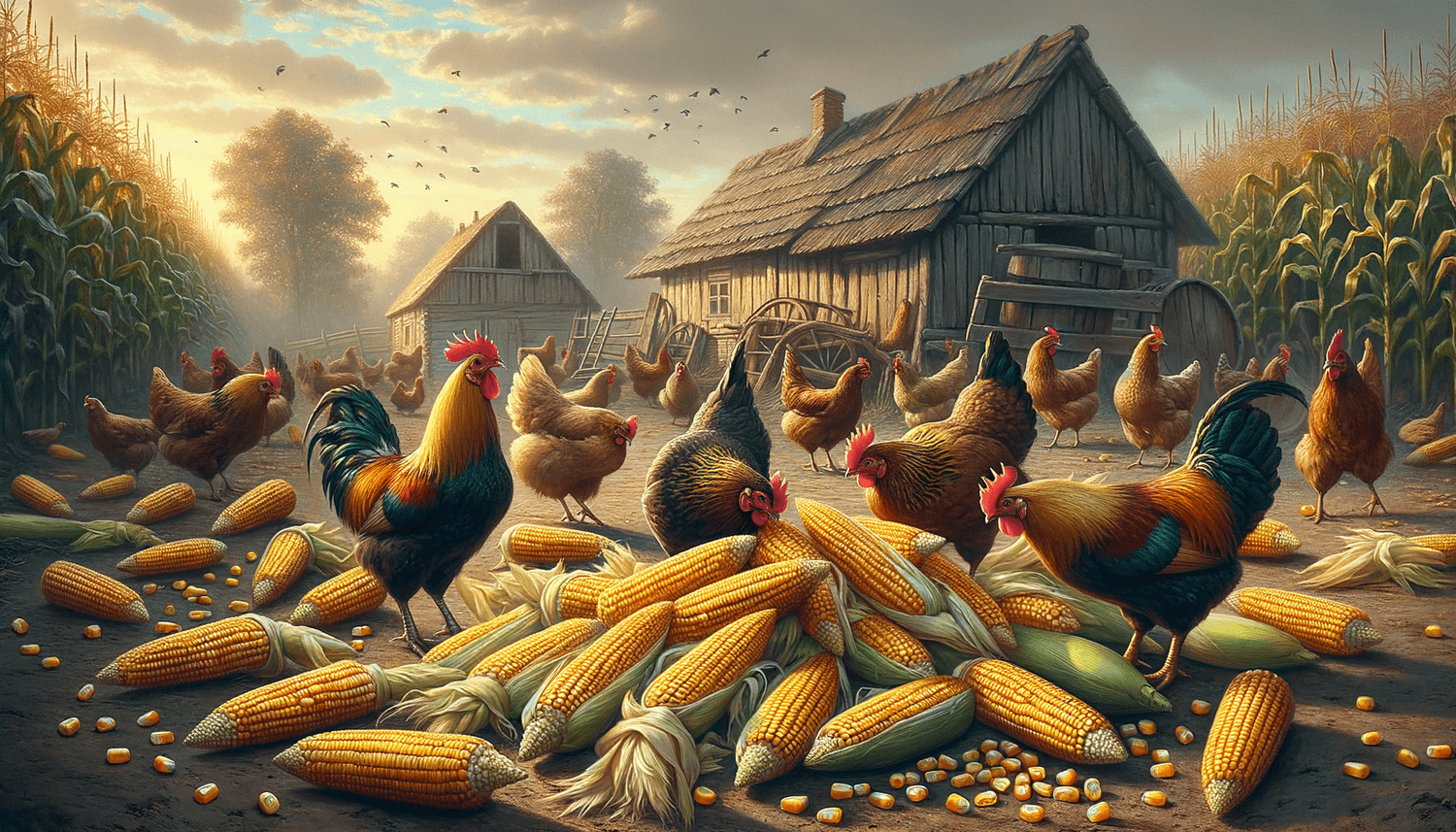Yes, chickens can eat corn husks and cobs. These parts of the corn plant are safe and generally digestible for chickens. Corn husks can serve as a fibrous snack, while cobs, although not as nutrient-dense, can be pecked at and provide entertainment for the chickens. However, they should be given in moderation to prevent issues with digestion due to excessive fiber.
Quick Summary
- Chickens can eat corn husks and cobs.
- These parts of corn are safe but should be given in moderation due to their high fiber content.
- Key benefits include serving as a source of entertainment and roughage; risks involve potential digestion issues if overfed.
- Recommended feeding guidelines entail offering small amounts as part of a balanced diet.
Overview of Corn Husks and Cobs
Corn husks are the green outer covering of the corn ear, while cobs are the core on which the corn kernels grow. While not significantly nutritious, corn husks contain some dietary fiber, and cobs are mostly leftover fibrous material after the kernels have been consumed. Both can be considered more for their textural benefits and ability to engage chickens’ natural foraging behavior than for their nutritional content.
Benefits and Risks of Corn Husks and Cobs for Chickens
Feeding chickens corn husks and cobs can provide roughage that aids in digestion, satisfy their pecking instinct, and offer environmental enrichment. However, the risks entail potential blockage or impact on the digestive system if chickens consume too much fibrous material without adequate water or if other more nutritionally complete feed is displaced by these snacks.
Feeding Guidelines
Offer pieces of corn husk and small chunks of cob as part of a varied diet. Ensure chickens have constant access to water to help digest the fiber. Limit the quantity to prevent these foods from displacing more nutritionally complete food, and do not replace a significant portion of their diet with corn husks or cobs.
Alternatives
For chickens, other vegetable scraps or greens such as lettuce, cabbage, and carrot tops can be better alternatives to corn husks and cobs. These provide not only fiber but also essential vitamins and minerals, while still encouraging natural foraging behaviors without the risk of digestive blockages.
Expert Opinions
Poultry nutritionists generally agree that while corn husks and cobs are not harmful, they should not be relied upon for substantial nutrition. It’s important to balance the chickens’ diet with a variety of feed options that fulfill their nutritional requirements. For specific feeding recommendations and health assessments, consulting with a vet familiar with poultry is always the best course of action.
Frequently Asked Questions
After learning about the edibility of corn husks and cobs for chickens, a few common questions might arise regarding their safety, benefits, and serving sizes. Below are answers to some of these typical inquiries.
How often can I give my chickens corn husks and cobs?
Corn husks and cobs can be given occasionally as a treat. It’s important to maintain a balanced diet, so these should not be everyday items and should form only a small fraction of food intake.
Do I need to prepare the corn husks and cobs before giving them to my chickens?
While no specific preparation is needed, it is always best to ensure that the corn husks and cobs are clean and free from pesticides or other chemicals before offering them to chickens.
Can corn husks and cobs replace commercial chicken feed?
No, corn husks and cobs cannot replace commercial chicken feed. They lack the necessary nutrients required for a chicken’s balanced diet and should only be given as a supplement to their primary feed.

















